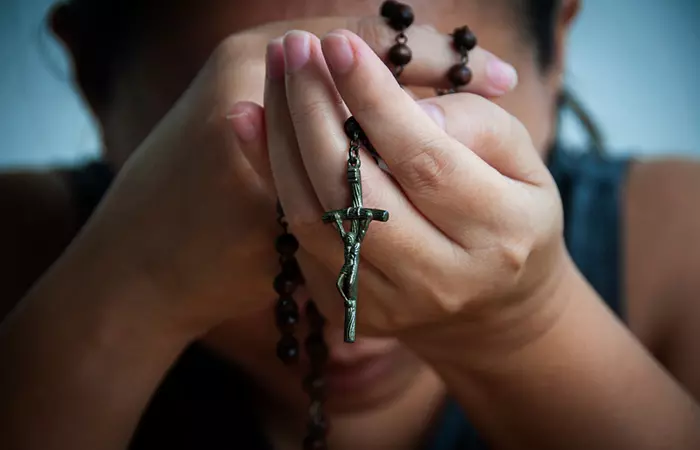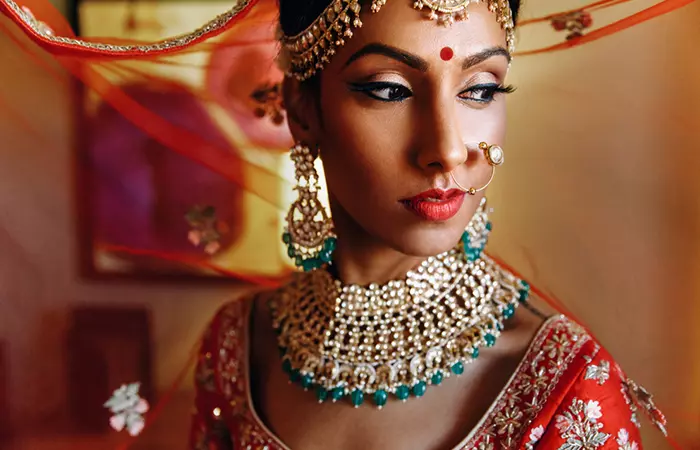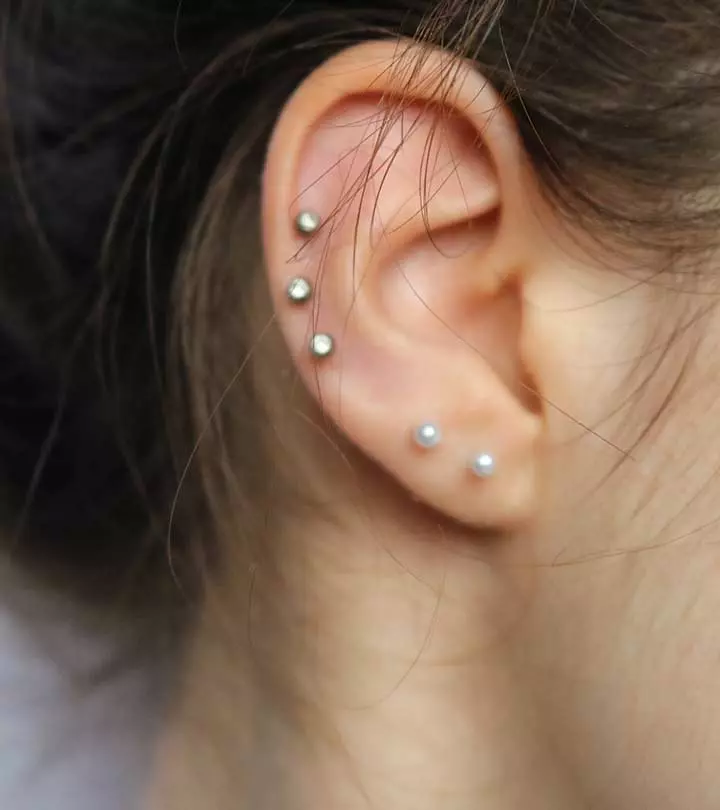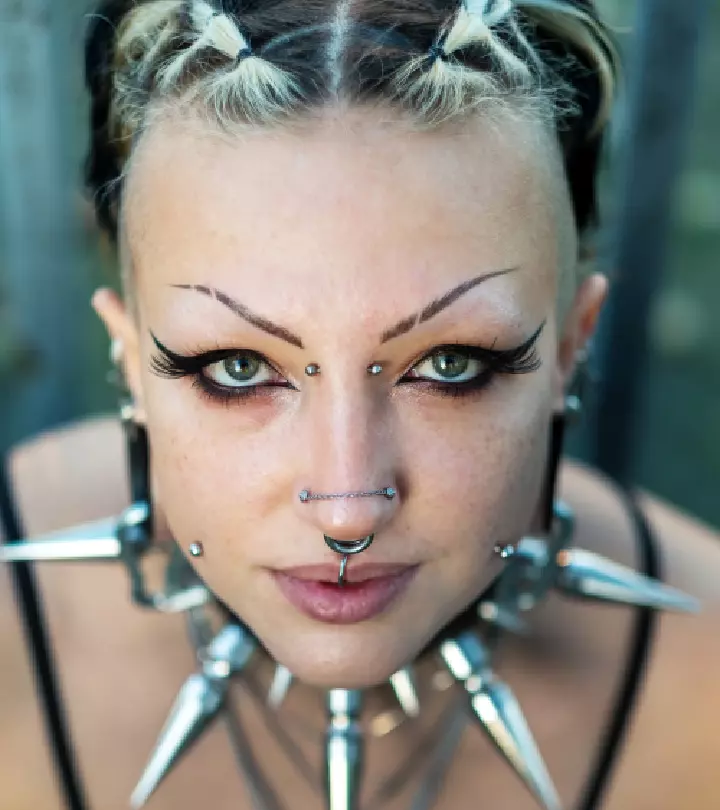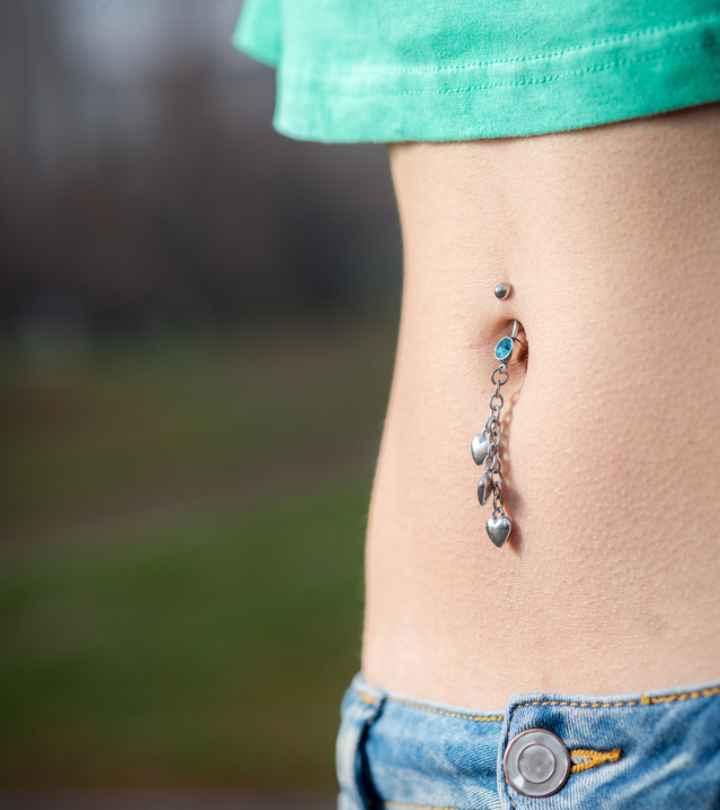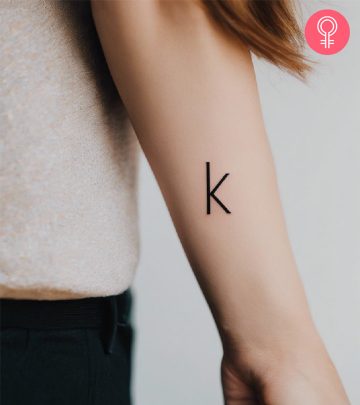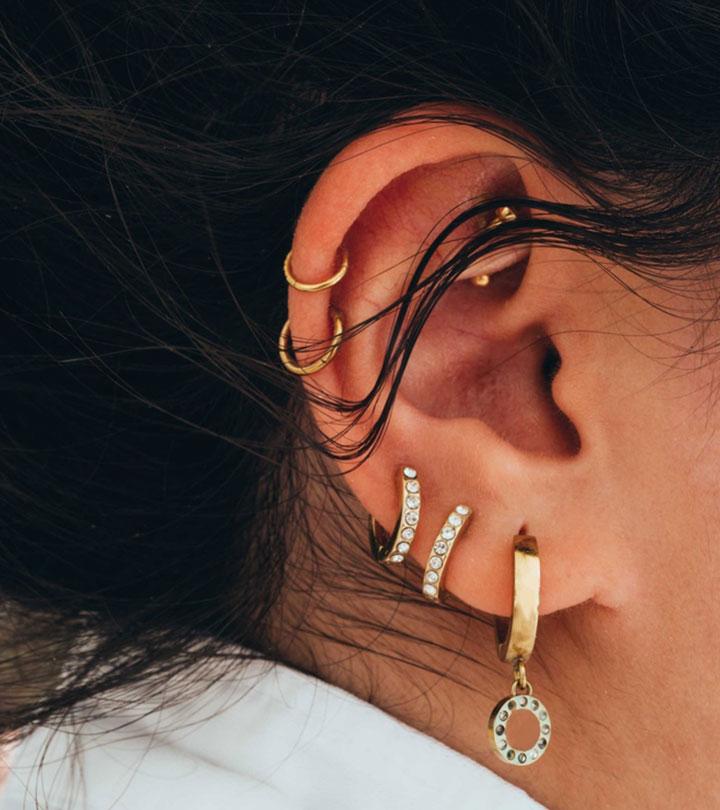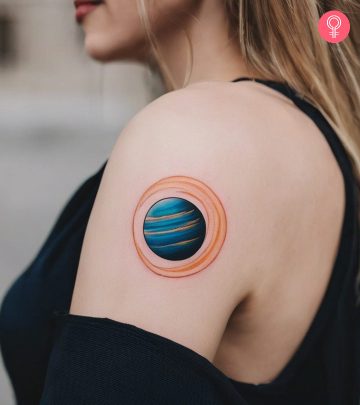Are Piercings A Sin? Exploring The Spiritual Dimensions
Unveiling the spiritual and religious depths of the art of body modification.

Image: iStock
Are piercings a sin? To understand this question, we have to delve into the world of body piercings, which have a rich history and diverse meanings across cultures and individuals. Some view them as a powerful form of self-expression, while others regard them with caution. To provide a definitive answer on whether piercings are a sin would be misleading and disrespectful to the different perspectives and beliefs. Instead, it is essential to gain an understanding of the nuances relevant to one’s faith and personal convictions. By exploring the different perspectives, one can make an informed decision that aligns with their beliefs and values. Keep reading!
In This Article
Are Piercings A Sin?
From delicate nose studs to bold earlobe tunnels, people have modified their bodies and expressed themselves through these adornments across cultures and throughout history. But are they sinful from a religious standpoint?
This is a complex topic, with no one-size-fits-all answer. Different faiths have varying interpretations and perspectives on body modifications. Some religious teachings may view certain forms of body modification as sinful, citing reasons related to modesty, respect for the body, or interpretations of sacred texts.
However, it is important to recognize that attitudes towards piercings vary widely across different cultures and belief systems. For some individuals, piercings hold personal or cultural significance unrelated to notions of sin.
In recent times, Western cultures have adopted a more accepting view of body modifications and diverse outward appearances. At the end of the day, it is about respecting each other’s perspectives and understanding that what is considered a sin to one person might not be to another. Keep scrolling to learn more about various faith traditions, starting with Christianity, where specific verses and principles influence perspectives on body modifications.
Are Piercings A Sin In Christianity?
While specific verses like those in Leviticus and Corinthians raise questions about body modifications, interpretations vary widely. Here are some biblical verses that address piercings to help Christian women and men:
- Leviticus 19:28: “You shall not make cuts on your body for the dead nor tattoo yourselves. I am the Lord.”
This verse comes from the Old Testament book of Leviticus, which contains laws and instructions for the Israelites. It is often cited against piercings and prohibits specific practices associated with mourning and pagan rites. However, interpreting its application to modern-day adornment remains debated. Some argue it forbids any markings, while others see it as specific to those rituals.
- 1 Corinthians 6:19-20: “Do you not know that your body is a temple of the Holy Spirit within you, whom you have from God? You are not your own, for you were bought with a price. So glorify God in your body.”
This passage is found in the New Testament book of 1 Corinthians, written by the Apostle Paul. It addresses Christian freedom and how to live according to Christian principles. This passage emphasizes respecting our bodies, but its connection to piercings is not explicit. Some interpret it as advocating modesty and avoiding practices harmful to the body, while others see it as encouraging responsible self-expression that honors God.
- Galatians 5:13: “For you were called to freedom, brothers and sisters; only do not use your freedom as an opportunity for the flesh, but through love serve one another.”
This verse is also from the New Testament book of Galatians, another letter written by Paul. It focuses on the freedom Christians have in Christ and the importance of using that freedom responsibly. This verse emphasizes Christian freedom within the boundaries of love and responsibility. Piercings, within this context, might be acceptable as long as they align with loving God and others.
Remember, that interpretations vary among Christians. Some believers emphasize grace and freedom in Christ, viewing piercings like nose rings as a matter of personal choice that does not necessarily equate to sin.
Examining piercings through the lens of Christianity offered a glimpse into diverse interpretations within a single faith. Now, we delve deeper into Islam, where the concept of “haram” (forbidden) adds another layer to the discussion.
Is Piercing Haram In Islam?
Here, interpretations of specific texts like hadiths mentioning earlobe piercing for women intertwine with broader principles of respecting the body and avoiding practices associated with pre-Islamic customs. Here are some texts that relate to piercings:
- Surah An-Nisa, verse 195: “And do not kill yourselves, for Allah is ever merciful to you.”
The central text of Islam has no direct mention of piercings. However, some scholars interpret verses promoting cleanliness and avoiding self-harm as cautionary against practices that might damage the body. This verse, emphasizing self-preservation, is sometimes cited against body modifications considered harmful.
- Sahih al-Bukhari: “Aisha reported that a young girl was brought to her who had her ears pierced. Aisha asked, ‘Who has pierced her ears?’ They said, ‘Her father.’ Aisha said, ‘He has harmed her; why didn’t he wait until she became older and asked her permission?’”
This hadith, while mentioning earlobe piercing for girls, raises the question of consent and potential harm. Hadiths are the Prophet Muhammad’s sayings and actions that serve as supplemental guidance to the Quran. Some hadiths mention earlobe piercing for women, but their applicability to other piercings and genders remains debated.
Hence, Islamic scholars hold different views on piercings.
- Some scholars consider piercings permissible, particularly earlobe piercing for women, as long as hygiene is maintained and they do not resemble non-Muslim practices.
- Others advise against piercings, citing potential harm, resemblance to pre-Islamic customs, or the possibility of attracting unnecessary attention.
Ultimately, the decision to get a piercing remains a personal one. Factors like individual beliefs, cultural norms, and the advice of trusted scholars should be considered.
While both Judaism and Islam share Abrahamic roots, their specific interpretations and cultural contexts create unique perspectives on adornments for women. Keep reading to discover how faith and personal expression intertwine across diverse traditions.
Is Piercing A Sin In Judaism?
In Judaism, you may encounter the following references to specific verses in the Torah that may influence the decision to adorn oneself with piercings:
- Numbers 6:5: “All the days that he separates himself for the Lord he shall not shave his head. Until the days are fulfilled for which he separates himself for the Lord, he shall be holy; he shall let the locks of his hair grow long.”
This verse taken from the Torah, mentioning hair as part of a Nazirite vow, is sometimes used to argue against altering the body. However, its direct connection to piercings remains debatable.
Additionally, the Talmud, a central text of Rabbinic Judaism, does not explicitly address piercing. However, its discussions on principles of modesty and respect for the body may inform Jewish views on body modification.
Unlike the Abrahamic religions, Hinduism lacks a single, definitive answer to the question of “sin.” It emphasizes internal purity and personal expression. Learn more about how piercings can be seen as auspicious adornments or symbolic expressions in Hinduism in the next section.
Is Piercing A Sin In Hinduism?
Major Hindu scriptures like the Vedas, Upanishads, and Bhagavad Gita do not explicitly forbid or encourage piercings. Here are some of the relevant texts that indirectly talk about body piercings:
- The Bhagavad Gita (13:3): “For the embodied one (self) is not touched by sin, because the embodied one is only a witness of the actions of the senses.”
Hindu philosophy emphasizes inner transformation and purity over external appearances. This text suggests piercings themselves might not be inherently sinful, but intentions and actions hold more weight. It may also mean that despite getting a piercing, the true self or the soul is not affected.
- Yajur Veda (31.18): “May I be adorned with all ornaments.”
This implies responsible adornment that upholds personal values and does not harm the body. In Hinduism, various deities are often depicted wearing ornaments, and these ornaments are considered symbols of divine attributes or qualities. For example, the goddess Lakshmi, who represents wealth, and prosperity, is often depicted adorned with various ornaments. Therefore, when someone expresses a wish to be adorned with all ornaments, they may be seeking blessings for abundance, prosperity, and well-being in their life.
Aside from these texts, there are diverse perspectives and considerations surrounding body adornment in Hinduism:
- nose piercings, particularly for women, hold cultural significance and are often associated with marriage, fertility, and beauty. Texts like Manusmriti mention specific nose ornaments, indicating their acceptance in specific contexts.
- Earrings, especially for men, symbolize various deities and social positions. The Mahabharata describes earrings worn by Krishna and Arjuna, highlighting their cultural and spiritual significance.
 Did you know?
Did you know?While both Hinduism and Buddhism emphasize inner transformation and spiritual growth, their approaches to body modifications and outward expression differ significantly. Scroll down to discover how piercings can be viewed through the lens of the Middle Way, impermanence, and the pursuit of enlightenment.
Is Piercing A Sin In Buddhism?
The core of Buddhist teachings focuses on the pursuit of enlightenment and liberation from suffering. The Buddha himself did not explicitly address body modifications like piercings.
Buddhist texts like the Dhammapada and the Sutras offer guidance on ethical conduct and right livelihood but do not talk about condemnation of piercings. Interpretations by different Buddhist schools and individual teachers might vary.
Buddhist principles like the Noble Eightfold Path and the Four Noble Truths highlight the importance of intention and mindfulness in all actions. The motivation behind getting a piercing, its impact on oneself and others, and maintaining awareness of its impermanence become crucial considerations.
 Did you know?
Did you know?Some interpretations might view excessive or ostentatious piercings as unnecessary attachments, while others might see them as harmless forms of self-expression.
- Theravada Buddhism: Some Theravada interpretations emphasize simplicity and moderation, potentially leading to a cautious approach towards body modifications.
- Mahayana Buddhism: Mahayana interpretations might be more open to individual expression, as long as it aligns with the core principles of non-harming and compassion.
While religious interpretations can shape individual choices, the cultural stigma surrounding bizarre body piercings paints a complex picture. Learn about the tangible judgments and stereotypes faced by those with piercings in the next section.
Cultural Stigma Of Body Piercings
While often seen as expressions of individuality and self-discovery, body piercings can also carry the weight of cultural stigma. Here are some of the key roots of stigma:
- In some historical and cultural contexts, piercings have been adopted by subcultures challenging societal norms, leading to negative stereotypes and association with deviance.
- Some faiths consider excessive piercings a violation of the body’s sanctity or associate them with pagan practices.
- Societal expectations around femininity and masculinity can influence perceptions of piercings. Some excessive body piercings might be deemed inappropriate for specific genders, creating a double standard.
- Traditional workplace dress codes might view visible piercings as unprofessional, impacting career opportunities for individuals with them.
Mim Benfield, a blogger, candidly shared, “I understand there is a stigma for a naval piercing (i).” She recounted a personal encounter, “I was only reading a Cosmo the other day and there was a story of how a woman was told on a first date that her belly button piercing was ridiculous because only ‘strippers’ have them.” Following surgery, she grappled with body image issues and opted for a navel piercing to conceal scarring. She describes the piercing as a confidence booster, allowing her to reclaim her body and defy societal norms.
It is important to remember that the impact of the stigma varies greatly depending on individual circumstances, cultural background, and personal experiences. Engaging in open and respectful conversations about body modifications can foster understanding and challenge harmful stereotypes.
Across various faith traditions, interpretations of body modifications vary widely, ranging from prohibitions based on sacred texts to acceptance as forms of personal expression. Ultimately, the decision to get a piercing is deeply personal and influenced by a myriad of factors including religious beliefs, cultural norms, and individual values. Raising awareness about the cultural and personal significance of piercings can combat prejudice and promote inclusivity. By promoting open dialogue, individual choice, and understanding, we can create a more inclusive world where everyone can adorn themselves authentically.
Frequently Asked Questions
Are there specific types of piercings that are more likely to be considered sinful?
Specific types of piercings are not singled out as inherently sinful. The interpretations vary based on cultural and religious beliefs.
Are there historical perspectives on piercings and sin that have evolved over time?
Historical perspectives on piercings and sin have shifted over time, influenced by changing societal norms and religious interpretations.
Are there any historical or mythological references within religions that involve piercings?
Yes, various religions have historical or mythological references to piercings. In Hinduism, the god Shiva is depicted with earrings, symbolizing wisdom and spiritual attainment. In ancient Egyptian culture, pharaohs and nobles adorned themselves with ear and body piercings as symbols of status and divine connection.
Is it a sin to get your nose pierced in Islam?
In Islam, the permissibility of nose piercings depends on interpretation. Some scholars consider it acceptable for cultural or modesty reasons.
Can we go to heaven with piercings?
Piercings alone do not determine one’s eligibility for heaven. It is about living a righteous life according to religious teachings.
Can female Muslims have piercings?
Interpretations vary, but many female Muslims have piercings for cultural or personal reasons, with modesty considerations.
Is ear piercing allowed for men in Islam?
Ear piercing for men is generally permitted in Islam, though interpretations may vary among scholars and cultural practices.
Key Takeaways
- The debate over whether piercings are a sin is complex, and influenced by diverse interpretations across religious and cultural contexts.
- While some religions, like Christianity and Islam, scrutinize sacred texts for guidance, others, such as Hinduism and Buddhism, emphasize inner transformation and intention.
- The cultural stigma surrounding piercings can contribute to negative stereotypes, but open dialogue and understanding can help combat prejudice.
Unravel the fascinating world of Hindu traditions with a deep dive into KarnaVedha, or ear piercing with the following video. Discover the intriguing scientific explanation behind this ancient practice.
Personal Experience: Source
StyleCraze's articles are interwoven with authentic personal narratives that provide depth and resonance to our content. Below are the sources of the personal accounts referenced in this article.
(i) The stigma of piercings – my naval piercing
https://iwishiwaselsa.wordpress.com/2015/12/06/today-belly-button-piercing-talk/
Read full bio of Asmita De
Read full bio of Shreya Mukherjee




